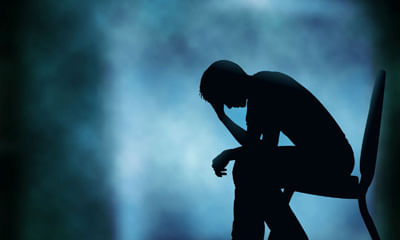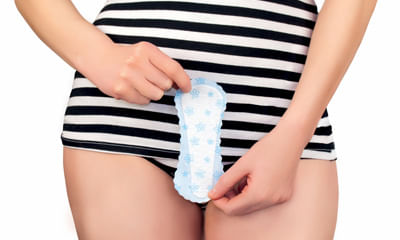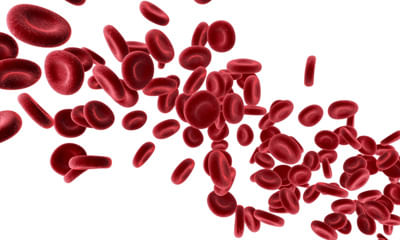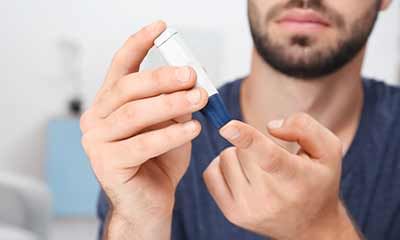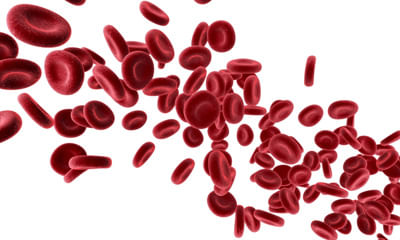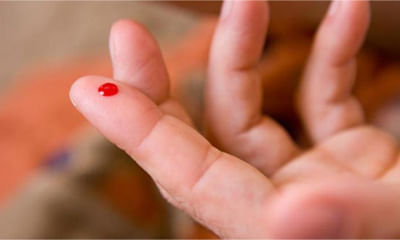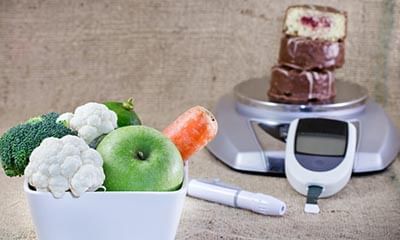Constant Dry Mouth And Thirst
I have been feeling awfully hungover for the past 9 months. It all started after a night of drinking last summer. I woke ...
Ask Free Question
Hi, agreed with Dr. saranaya's answer. I would like to add one more thing to her answer that you should take a few cognitive behavior therapy sessions from a good psychotherapist. You might be having some deep down issues which you can solve with the help of cbt. Cbt works wonders in anxiety disorders. For further help you may contact me for online sessions.
I'm a 64 year old male with a acquired brain injury from an accident 2 and a half years ago, also have physical disabili ...
Ask Free Question
I don't think you need to go to a and e. But the thirst and urination issues can be due to diabetes so as brain injury. Difficulty in holding can be due to brain as well as spine injury or urinary infection and other causes. So you need proper detailed evaluation. For diagnosis.
Dear doctors we are ttc. I had my period on 10th june 2020. We tried during the cycle without any ovulation induction me ...
Ask Free Question
It's possible to get pregnant every time you have unprotected sex. Sperm can live in a woman's reproductive tract for about six days, so it's always best to use protection. But we have to look into the details of the problem. Let's have a detailed discussion for better advice and healthy lifestyle.
How to control hunger pangs which results in eating more and elevated sugar which type of exercises are more beneficial ...
Ask Free Question
Uncontrolled diabetes causes organ damage. Fasting must be within 130 and post prandal must be within 180. Any aerobic workout at any time of day pre meals is good. Manage your carbs and fat, cut down calories if over weight. Don't starve take 3 major meals and 2 minor meals as per the blood sugar levels. Sometimes increased blood sugar results in increased hunger and thirst. Contact for a detailed diet plan.
I have had my angioplasty before 2 weeks. My fasting blood sugar is 130 and after 2 hours of meal is 178. Am I diabetic? ...
Ask Free Question
Sugar levels are borderline high. You need diet Therapy and medications also.
I never take any oil foods ,sweets heavily but today I heard that I have blood sugar levels 228, so how can I control my ...
Ask Free Question
Better start medicine for it it's too high.
I have thyroid from 4 years and I have diabetes too, so I get a lot of headache which is un- avoidable. Please give me h ...
Ask Free Question
The thyroid can be properly and fully controlled by medicines and will not cause any symptoms you mention. You have clearly diabetes and try the diabetic diet and precautions as I outline here. Diabetes affects all organs in the body – eyes, kidneys, nerves, reproductive system all are affected, in fact, from toe to hair. For diabetic control, patient and doctor should be in constant touch for regular follow up and advice. The common symptoms are: -both types of diabetes have some of the same tell-tale warning signs. Hunger and fatigue. Your body converts the food you eat into glucose that your cells use for energy. But your cells need insulin to bring the glucose in. If your body doesn't make enough or any insulin, or if your cells resist the insulin your body makes, the glucose can't get into them and you have no energy. This can make you more hungry and tired than usual. Urinating more often and being thirstier. The average person usually has to pee between four and seven times in 24 hours, but people with diabetes may go a lot more. Dry mouth and itchy skin. Because your body is using fluids to make pee, there's less moisture for other things. You could get dehydrated, and your mouth may feel dry. Dry skin can make you itchy. Blurred vision. Changing fluid levels in your body could make the lenses in your eyes swell up. They change shape and lose their ability to focus. You need a total check up before doing anything. Diabetes, often referred to by doctors as diabetes mellitus, describes a group of metabolic diseases in which the person has high blood glucose (blood sugar), either because insulin production is inadequate, or because the body's cells do not respond properly to insulin or both. It is a difficult task to control blood sugar in the desired normal range. Whatever we eat is metabolized to sugar in the body to provide energy for our daily activities. For absolute control, one has to monitor his / her blood sugar at regular intervals (self-monitoring of blood glucose – smbg). Though difficult, this can be done by a glucometer and keep a record. Get an idea of fasting sugar (fbs) and 2 hours after food (ppbs), & hba1c (inform me) and check before dinner and after every major food. The basic idea is to reduce the food intake to 1/3 of what you take now. The dictum of sugar control is diet, exercise, diet + medicine and at later stage medicine+ insulin will be needed. There are different diet plans of varying calories for each person depending on his activity & lifestyle. For diabetes, hypertension (high bp) and much long-term illness control there is the need for regular advice and follow up. Just one-time consultation or advice is not enough to guide a diabetic in a scientifically & medically correct manner. Forgiving you regular follow up you ask me with all details like your daily eating pattern and medicines you take. I assure you proper guidance. If you keep in touch personally. Diet plan for diabetes food itemamountprotein (gm)calorie (kcal) early morning fenugreek seeds with 1 cup of water--- tea (without sugar)1 cup435 marie biscuits2156 breakfast stuffed methi/palak /lauki paratha2 small7200 curd50 gm (1 cup)330 or egg white / paneer bhurji1 medium bowl6130 plain roti (no oil) 2 small3150 or vegetable poha/upama/oats/daliya1 soup bowl4.5230 mid morning apple /guava/orange1-40 lunch salad (10 mins before lunch)1 medium bowl130 capsicum + gobhi veg1 medium bowl185 dal1 soup bowl6130 phulka (no ghee)26175 evening milk / green tea / herbal tea / lemon water1 cup235 roasted chana + muri1 cup585 dinner salad (10 mins before dinner)phulka (no ghee24.5150 lauki veg1 cup285 curd1 cup330 late night skim milk (no sugar)1 glass4120 total-49.51286 here are the easy ways to lower blood sugar levels naturally: exercise regularly. Control your carb intake. Increase your fiber intake. Drink water and stay hydrated. Implement portion control. Choose foods with a low glycemic index. Control stress levels. Monitor your blood sugar levels.
Hello sir I have big problems because last month I have checked my sugar there fasting 106 today h check random 370. ...
Ask Free Question
You have clearly diabetes and try the diabetic diet and precautions as I outline here. Diabetes affects all organs in the body – eyes, kidneys, nerves, reproductive system all are affected, in fact, from toe to hair. For diabetic control, patient and doctor should be in constant touch for regular follow up and advice. The common symptoms are: -both types of diabetes have some of the same tell-tale warning signs. Hunger and fatigue. Your body converts the food you eat into glucose that your cells use for energy. But your cells need insulin to bring the glucose in. If your body doesn't make enough or any insulin, or if your cells resist the insulin your body makes, the glucose can't get into them and you have no energy. This can make you more hungry and tired than usual. Urinating more often and being thirstier. The average person usually has to pee between four and seven times in 24 hours, but people with diabetes may go a lot more. Dry mouth and itchy skin. Because your body is using fluids to make pee, there's less moisture for other things. You could get dehydrated, and your mouth may feel dry. Dry skin can make you itchy. Blurred vision. Changing fluid levels in your body could make the lenses in your eyes swell up. They change shape and lose their ability to focus. You need a total check up before doing anything. Diabetes, often referred to by doctors as diabetes mellitus, describes a group of metabolic diseases in which the person has high blood glucose (blood sugar), either because insulin production is inadequate, or because the body's cells do not respond properly to insulin or both. It is a difficult task to control blood sugar in the desired normal range. Whatever we eat is metabolized to sugar in the body to provide energy for our daily activities. For absolute control, one has to monitor his / her blood sugar at regular intervals (self-monitoring of blood glucose – smbg). Though difficult, this can be done by a glucometer and keep a record. Get an idea of fasting sugar (fbs) and 2 hours after food (ppbs), & hba1c (inform me) and check before dinner and after every major food. The basic idea is to reduce the food intake to 1/3 of what you take now. The dictum of sugar control is diet, exercise, diet + medicine and at later stage medicine+ insulin will be needed. There are different diet plans of varying calories for each person depending on his activity & lifestyle. For diabetes, hypertension (high bp) and much long-term illness control there is the need for regular advice and follow up. Just one-time consultation or advice is not enough to guide a diabetic in a scientifically & medically correct manner. Forgiving you regular follow up you ask me with all details like your daily eating pattern and medicines you take. I assure you proper guidance. If you keep in touch personally. Diet plan for diabetes food itemamountprotein (gm)calorie (kcal) early morning fenugreek seeds with 1 cup of water--- tea (without sugar)1 cup435 marie biscuits2156 breakfast stuffed methi/palak /lauki paratha2 small7200 curd50 gm (1 cup)330 or egg white / paneer bhurji1 medium bowl6130 plain roti (no oil) 2 small3150 or vegetable poha/upama/oats/daliya1 soup bowl4.5230 mid morning apple /guava/orange1-40 lunch salad (10 mins before lunch)1 medium bowl130 capsicum + gobhi veg1 medium bowl185 dal1 soup bowl6130 phulka (no ghee)26175 evening milk / green tea / herbal tea / lemon water1 cup235 roasted chana + muri1 cup585 dinner salad (10 mins before dinner)phulka (no ghee24.5150 lauki veg1 cup285 curd1 cup330 late night skim milk (no sugar)1 glass4120 total-49.51286 here are the easy ways to lower blood sugar levels naturally: exercise regularly. Control your carb intake. Increase your fiber intake. Drink water and stay hydrated. Implement portion control. Choose foods with a low glycemic index. Control stress levels. Monitor your blood sugar levels.
My hb1ac blood checking reading is 8.3 last year (july 18) this year it is 8.9. Fasting sugar readings is 143 ,non fasti ...
Ask Free Question
You have very much uncontrolled diabetes and need stricter control. You have clearly diabetes and try the diabetic diet and precautions as I outline here. Diabetes affects all organs in the body – eyes, kidneys, nerves, reproductive system all are affected, in fact, from toe to hair. For diabetic control, patient and doctor should be in constant touch for regular follow up and advice. The common symptoms are: -both types of diabetes have some of the same tell-tale warning signs. Hunger and fatigue. Your body converts the food you eat into glucose that your cells use for energy. But your cells need insulin to bring the glucose in. If your body doesn't make enough or any insulin, or if your cells resist the insulin your body makes, the glucose can't get into them and you have no energy. This can make you more hungry and tired than usual. Urinating more often and being thirstier. The average person usually has to pee between four and seven times in 24 hours, but people with diabetes may go a lot more. Dry mouth and itchy skin. Because your body is using fluids to make pee, there's less moisture for other things. You could get dehydrated, and your mouth may feel dry. Dry skin can make you itchy. Blurred vision. Changing fluid levels in your body could make the lenses in your eyes swell up. They change shape and lose their ability to focus. You need a total check up before doing anything. Diabetes, often referred to by doctors as diabetes mellitus, describes a group of metabolic diseases in which the person has high blood glucose (blood sugar), either because insulin production is inadequate, or because the body's cells do not respond properly to insulin or both. It is a difficult task to control blood sugar in the desired normal range. Whatever we eat is metabolized to sugar in the body to provide energy for our daily activities. For absolute control, one has to monitor his / her blood sugar at regular intervals (self-monitoring of blood glucose – smbg). Though difficult, this can be done by a glucometer and keep a record. Get an idea of fasting sugar (fbs) and 2 hours after food (ppbs), & hba1c (inform me) and check before dinner and after every major food. The basic idea is to reduce the food intake to 1/3 of what you take now. The dictum of sugar control is diet, exercise, diet + medicine and at later stage medicine+ insulin will be needed. There are different diet plans of varying calories for each person depending on his activity & lifestyle. For diabetes, hypertension (high bp) and much long-term illness control there is the need for regular advice and follow up. Just one-time consultation or advice is not enough to guide a diabetic in a scientifically & medically correct manner. Forgiving you regular follow up you ask me with all details like your daily eating pattern and medicines you take.
Hi Dr. vanakkam. I am a retired teacher. I started having diabetics since 2013. Now on insulin jab at 11 in the morning ...
Ask Free Question
Your routine is good and you need to reduce your food intake and increase the dose or change the medicines. You have clearly diabetes and try the diabetic diet and precautions as I outline here. Diabetes affects all organs in the body – eyes, kidneys, nerves, reproductive system all are affected, in fact, from toe to hair. For diabetic control, patient and doctor should be in constant touch for regular follow up and advice. The common symptoms are: -both types of diabetes have some of the same tell-tale warning signs. Hunger and fatigue. Your body converts the food you eat into glucose that your cells use for energy. But your cells need insulin to bring the glucose in. If your body doesn't make enough or any insulin, or if your cells resist the insulin your body makes, the glucose can't get into them and you have no energy. This can make you more hungry and tired than usual. Urinating more often and being thirstier. The average person usually has to pee between four and seven times in 24 hours, but people with diabetes may go a lot more. Dry mouth and itchy skin. Because your body is using fluids to make pee, there's less moisture for other things. You could get dehydrated, and your mouth may feel dry. Dry skin can make you itchy. Blurred vision. Changing fluid levels in your body could make the lenses in your eyes swell up. They change shape and lose their ability to focus. You need a total check up before doing anything. Diabetes, often referred to by doctors as diabetes mellitus, describes a group of metabolic diseases in which the person has high blood glucose (blood sugar), either because insulin production is inadequate, or because the body's cells do not respond properly to insulin or both. It is a difficult task to control blood sugar in the desired normal range. Whatever we eat is metabolized to sugar in the body to provide energy for our daily activities. For absolute control, one has to monitor his / her blood sugar at regular intervals (self-monitoring of blood glucose – smbg). Though difficult, this can be done by a glucometer and keep a record. Get an idea of fasting sugar (fbs) and 2 hours after food (ppbs), & hba1c (inform me) and check before dinner and after every major food. The basic idea is to reduce the food intake to 1/3 of what you take now. The dictum of sugar control is diet, exercise, diet + medicine and at later stage medicine+ insulin will be needed. There are different diet plans of varying calories for each person depending on his activity & lifestyle. For diabetes, hypertension (high bp) and much long-term illness control there is the need for regular advice and follow up. Just one-time consultation or advice is not enough to guide a diabetic in a scientifically & medically correct manner. Forgiving you regular follow up you ask me with all details like your daily eating pattern and medicines you take. I assure you proper guidance. If you keep in touch personally. Diet plan for diabetes food itemamountprotein (gm)calorie (kcal) early morning fenugreek seeds with 1 cup of water--- tea (without sugar)1 cup435 marie biscuits2156 breakfast stuffed methi/palak /lauki paratha2 small7200 curd50 gm (1 cup)330 or egg white / paneer bhurji1 medium bowl6130 plain roti (no oil) 2 small3150 or vegetable poha/upama/oats/daliya1 soup bowl4.5230 mid morning apple /guava/orange1-40 lunch salad (10 mins before lunch)1 medium bowl130 capsicum + gobhi veg1 medium bowl185 dal1 soup bowl6130 phulka (no ghee)26175 evening milk / green tea / herbal tea / lemon water1 cup235 roasted chana + muri1 cup585 dinner salad (10 mins before dinner)phulka (no ghee24.5150 lauki veg1 cup285 curd1 cup330 late night skim milk (no sugar)1 glass4120 total-49.51286 here are the easy ways to lower blood sugar levels naturally: exercise regularly. Control your carb intake. Increase your fiber intake. Drink water and stay hydrated. Implement portion control. Choose foods with a low glycemic index. Control stress levels. Monitor your blood sugar levels.

